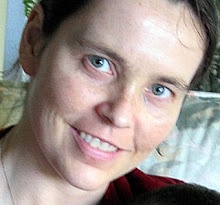I have to unlock my car from the passenger side. Several years ago someone tried to jimmy the lock completely out of the driver’s side door, but was interrupted and ran away, or gave up before the job was finished. The lock remained loosely in place until one day about a year ago when I tried to put the key in it and the whole thing just fell out of the mortise and into the door’s hollow interior.
Today I was unlocking said passenger-side door in the parking lot of an upscale market, a bag of groceries in my free hand, and I wondered why I hadn’t fixed the lock yet. Well, I thought to myself, I just don’t have any extra money right now (being on a student’s budget) and even if I had it, the lock would be low on the list of ways to spend the money.
I set the bag of groceries on the front seat, and the incongruity of the (relatively) expensive groceries in my old car – 289,000 miles, cracked windshield, non-functioning door lock, missing front left hubcap – could only have been lost on me if I was trying not to notice it. For the record, my husband usually does the shopping, which is why I hadn’t made the connection earlier. Anyway, this got me thinking about my priorities, and made me wonder why I’m willing to spend a substantial percentage of my family’s income on food while my car falls apart before my eyes, not to mention the extra burden I’m placing on myself in terms of student loans.
Some people, if they had access to our financial statements, might consider the amount of money my husband and I spend on food to be above our means. Why not take advantage of the great deals on food products at Costco or Target or WalMart, especially if it means having to take out less in student loans? Why not buy processed food or junk food, which only costs about $1.76 per 1,000 calories compared to $18.16 per 1,000 calories for more nutritious foods (according to a 2007 study discussed here)?
For some, especially those on a limited budget like me, the choice between cheap food and expensive food seems like a no-brainer (go for the deal! save money now!), but for me the no-brainer is that food is fuel, food is health, food is life.
I consider the food I eat to be part of my health insurance plan. I believe in the concept of food as medicine, especially in prevention of disease and decrepitude. In my philosophy of nutrition, healthy food means whole, unprocessed food, which is available in most regular grocery stores at reasonable prices, but I also want organic produce, and organic, pasture-raised animal products, and on top of that I’d prefer food grown or raised on farms that are within a day’s drive of my home. So I pay extra at a grocery store that doesn’t have to designate a special area for “natural” foods, and I shell out the money to belong to a CSA so that I can support my local farmers and get the freshest produce.
I’ll take my cue from European countries, in which citizens spend more on their food than they do on health care, rather than the U.S. where that trend is reversed. Even if it means taking out more in student loans, I’d rather spend my money on high-quality organic food now than on doctors and drugs in my old age. I’ll gladly pay the interest on those loans, knowing that I’ll be collecting the dividends for many years after my loans are paid off.
Wednesday, May 6, 2009
Subscribe to:
Post Comments (Atom)

When people say "...but organic food is so expensive." I say "so is cancer." Love your post.
ReplyDelete